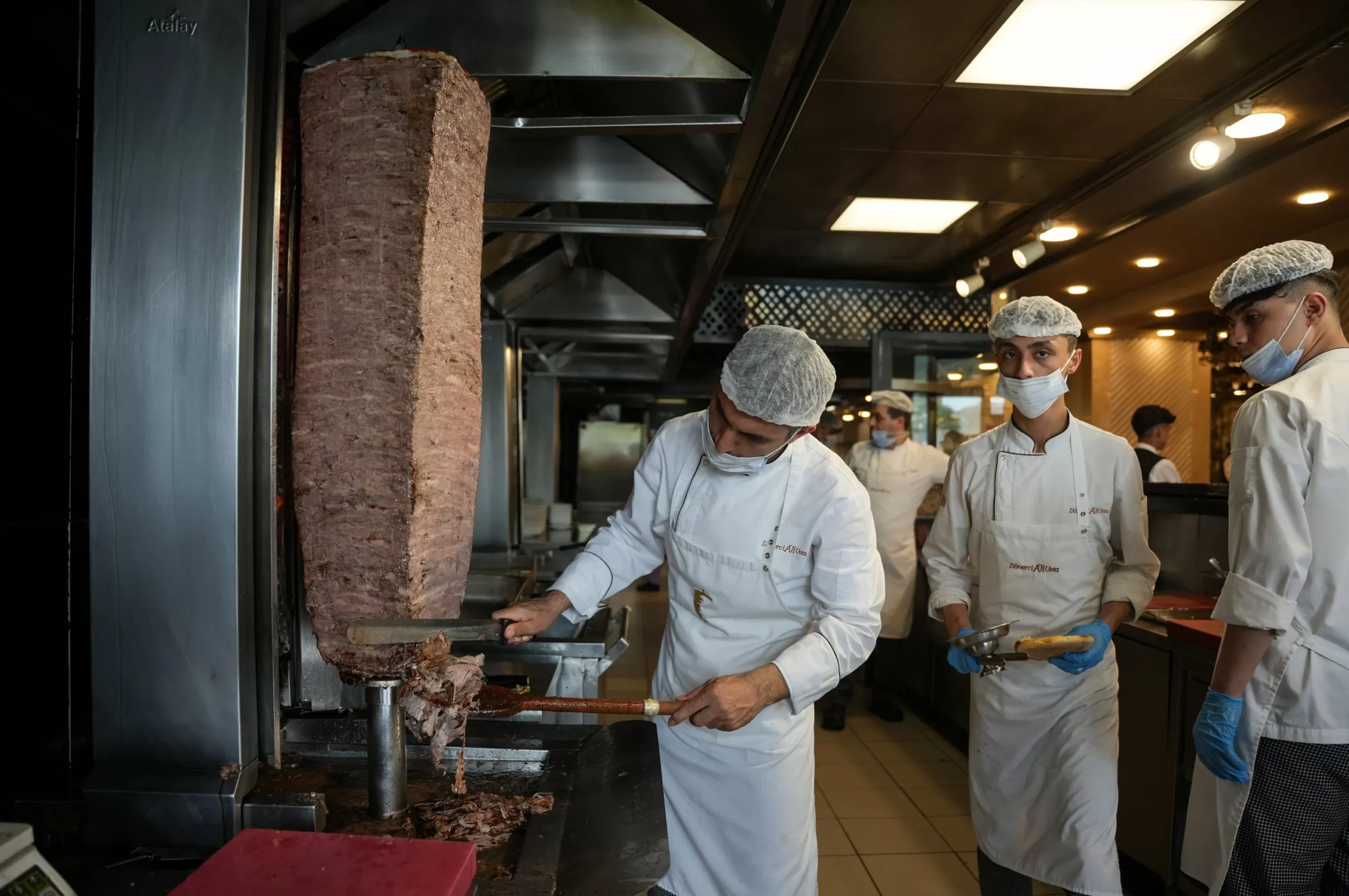Turkey’s application to the European Union (EU) for the registration of döner, one of the foremost flavors associated with Turkish cuisine, as a ‘traditional food,’ has been met with great excitement and anticipation both in Turkey and across Europe. This move marks a significant step towards the recognition and preservation of our rich food culture, and it is a testament to the unique and diverse flavors that our country has to offer.
Döner, a dish made of meat cooked on a vertical rotisserie, has been a staple in Turkish cuisine for centuries. Its origins can be traced back to the Ottoman Empire, where it was a favorite among the sultans and their court. Over the years, döner has evolved and become a beloved street food, not only in Turkey but also in many European countries. Its popularity is a testament to its delicious taste and the skill and expertise of our chefs who have perfected the art of making it.
The application for the registration of döner as a ‘traditional food’ is a significant step for Turkey, as it recognizes the cultural and historical importance of this dish. This move is in line with the EU’s efforts to safeguard and promote traditional and regional foods, and it is an acknowledgment of the cultural diversity within the member states. It also reflects the growing interest and appreciation for ethnic and traditional foods among consumers, both in Europe and around the world.
The registration of döner as a traditional food will not only protect its name and origin but also ensure that its production and preparation methods are safeguarded. This will guarantee that the quality and authenticity of döner are maintained, and consumers can be assured that they are getting the real deal. It will also create opportunities for our small and medium-sized enterprises (SMEs) to market and export their products under the protected name of ‘döner.’ This will not only boost our economy but also promote our food culture on a global scale.
Moreover, the registration of döner as a traditional food will also benefit consumers, as they will have access to high-quality, authentic döner, made according to traditional methods. This will also promote food safety and traceability, as the production and processing of döner will be closely monitored and regulated. This move will not only benefit the Turkish community but also the European consumers who have come to love and appreciate this dish.
In addition to its cultural and economic significance, the registration of döner as a traditional food will also have a positive impact on the environment. As döner is traditionally made with locally sourced, fresh ingredients, the production and consumption of this dish will support sustainable agriculture and reduce our carbon footprint. This is in line with the EU’s efforts to promote sustainable food systems and support local producers.
The registration of döner as a traditional food is a testament to the close relationship between Turkey and the EU. It reflects our shared values and commitment to preserving and promoting cultural diversity. This move also highlights the potential for cooperation and collaboration between Turkey and the EU in the field of food and agriculture. It opens up the opportunity for further exchange and learning between our countries, which will only strengthen our ties.
In conclusion, Turkey’s application for the registration of döner as a traditional food is a significant step towards preserving and promoting our rich food culture. It will not only protect the name and origin of döner but also ensure its quality and authenticity. This move will also have a positive impact on our economy, the environment, and our relationship with the EU. We are confident that döner will soon be recognized as a traditional food, and we look forward to sharing this delicious dish with the rest of the world.






